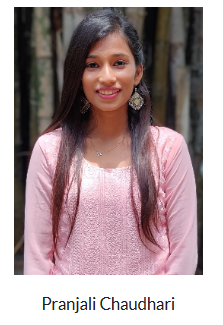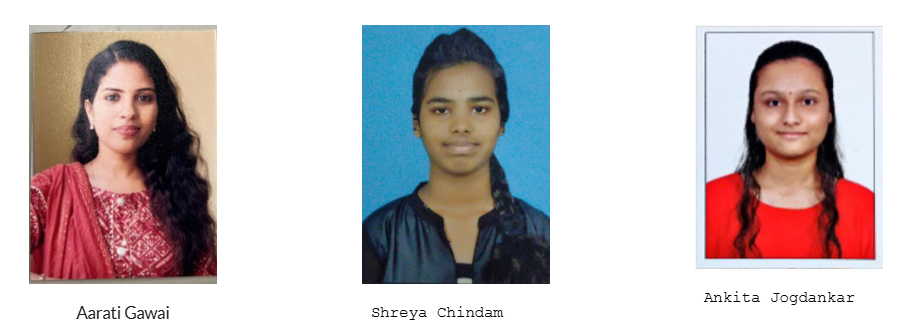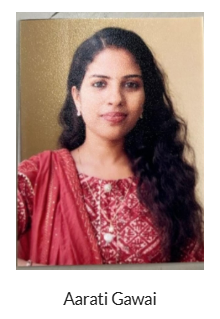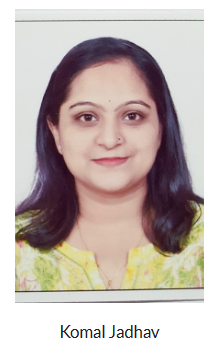
The B.Sc. Computer Science programme was started in 2000 and B.Sc. Information Technology programme was started in 2001 with an aim to make the students employable and impart industry oriented training. 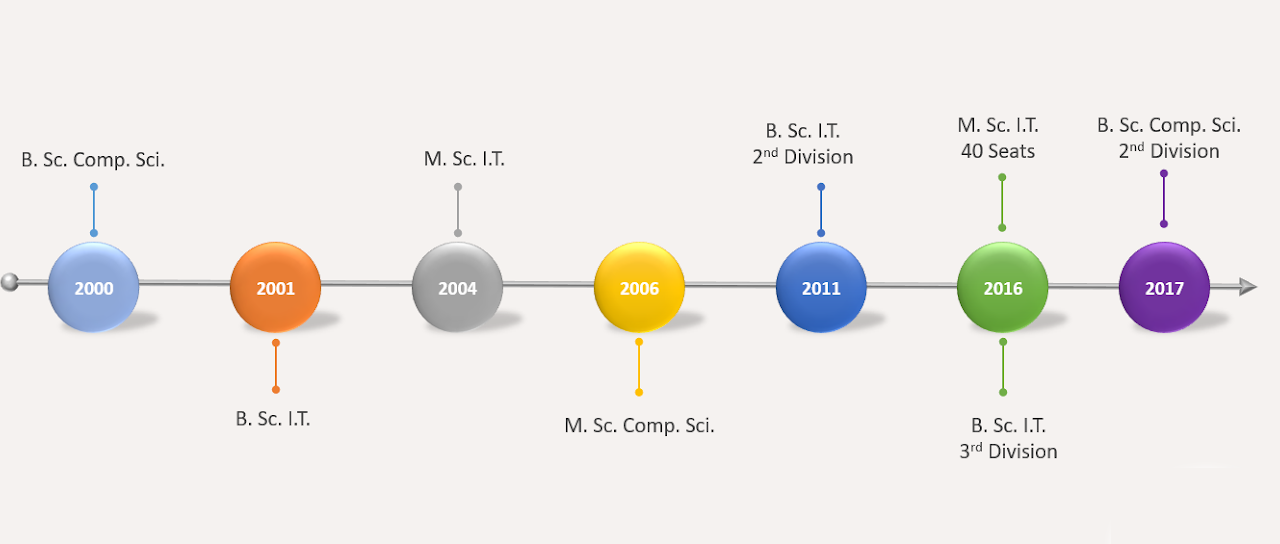
Program Objectives of B.Sc. I.T.
At the end of 3 years Bachelor of Computer Science the students will be able :
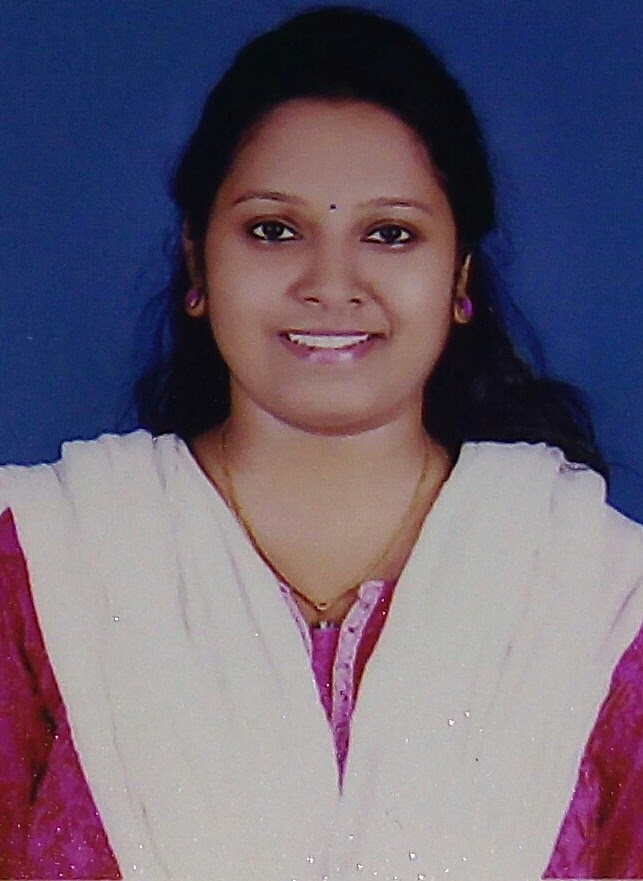
Course Coordinator Comp. Sci.
Assistant Prof.
M.Sc. Comp.Sci., M.C.A.
UGC-NET
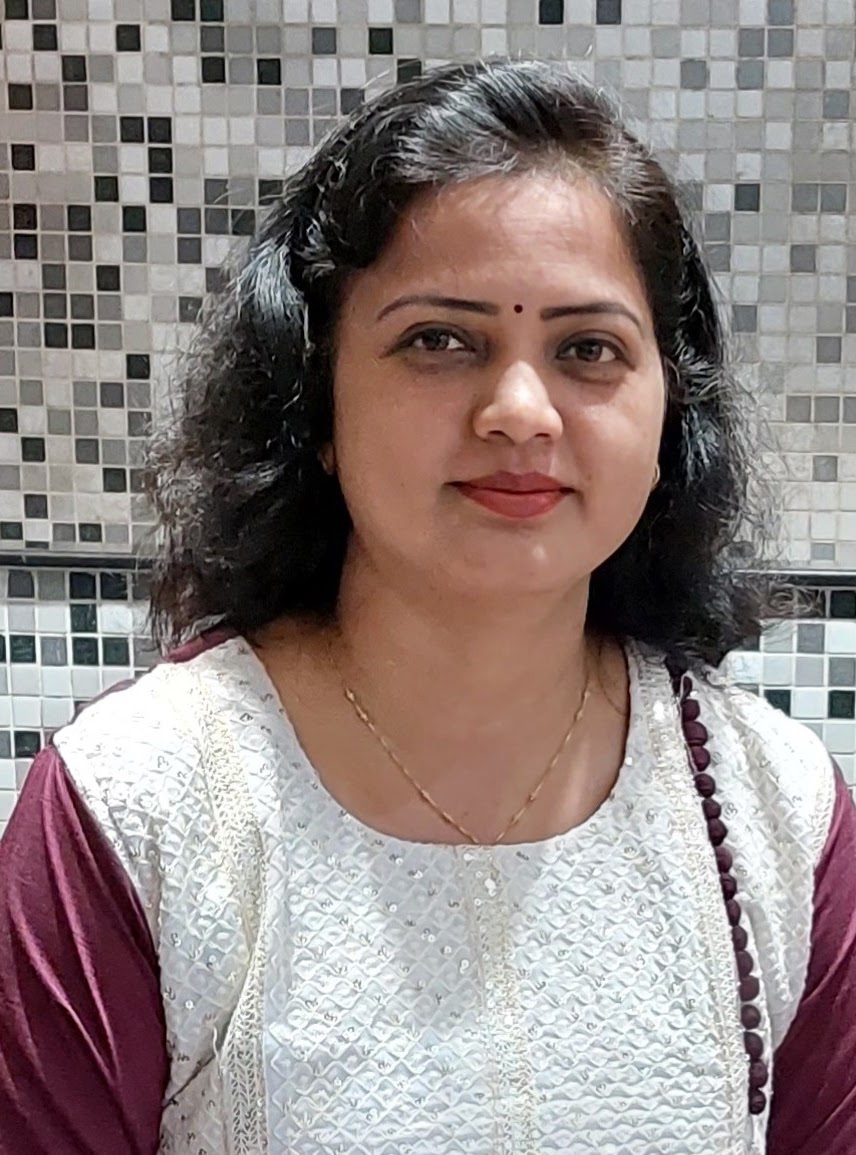
Course Coordinator I.T.
Assistant Prof.
M.Sc. Comp. Sci., B. Ed. (Sci./Maths)
UGC-NET, MH-SET
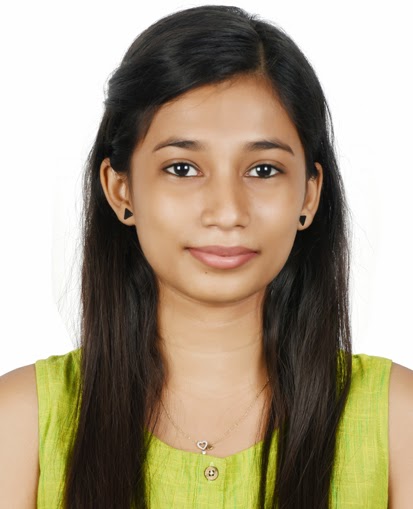
Assistant Prof.
M.Sc. I.T., B.Ed.(Sci./Maths)
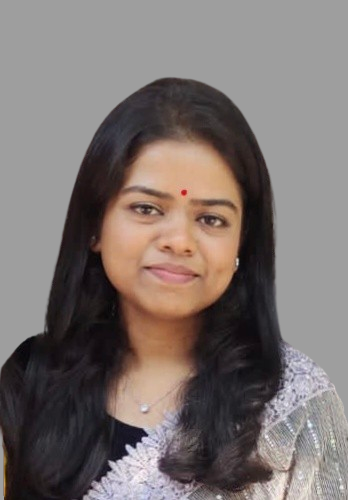
Assistant Prof.
M.Sc. Electronics, MH-SET
| SEM-I | SEM-II |
|---|---|
| Major : Programming with C | Major : OOPs with C++ |
| Major : Database Management Systems | Major : Web Designing |
| Major Practical | Major Practical |
| OE : Elementary Statistical Techniques for Economics | Minor : Statistics Minor Practical-II |
| VSC : Combinational and Sequential Design Practical | OE : Elementary Mathematics for Economics |
| SEC : Office Tools for Data Management Practical | VSC : Assembly Language Programming (Practical) |
| AEC : Introduction to Communication Skills in English I | SEC : PL-SQL (Practical) |
| VEC : Environmental Management & Sustainable Development-I | AEC : हिंदी भाषा : कौशल के आधार / भाषिक कौशल्यांचे उपयोजन - १ (भाषण व निवेदन कौशल्ये) |
| IKS : Indian Knowledge Systems | VEC : Environmental Management & Sustainable Development-II |
| CC : Introduction to Cultural Activities | CC : Foundation and Exploration of Performing and Fine Art |
| SEM-III | SEM-IV |
|---|---|
| Major : Python Programming | Major : Core Java |
| Major : Data Structures | Major : Software Engineering |
| Major : Operating System | Major : Computer Networks |
| Major Practical | Major Practical |
| OE : Introduction to Geoinformatics | OE : |
| Minor : Operation Research-I | Minor : Operation Research-II |
| Practicals based on Operation Research-I | Practicals based on Operation Research-II |
| VSC : Applied Mathematics | SEC : Computer Graphics / Mobile Programming Practical |
| AEC : भाषिक कौशल्यांचे उपयोजन - २ (कथाकथन कौशल्य आणि अभिवाचन कौशल्य) /हिंदी भाषा व्यवहारिक प्रयोग | AEC : |
| FP : Field Project | CEP : Continuing Education Program |
| CC : Indian Theatre: Classical Roots and Contemporary Expressions | CC : Integrated Theatre Production: Stage Craft, Costume, Music and Technology |
| SEM-V | SEM-VI |
|---|---|
| Software Project Management | Software Testing and Quality Assurance |
| Internet of Things: Theory and Practice | Information Security |
| Advanced Web Development | Business Intelligence and Data Analytics |
| Linux System Administration | Fundamentals of GIS |
| Advanced Java Technologies | IT Infrastructure Management |
| SEM-I | SEM-II |
|---|---|
| Data Science | Big Data Analysis |
| Soft Computing Techniques | Modern Networking |
| Cloud Computing | Micro Services Architecture |
| Security Breaches and Countermeasures / Data Center Technologies / Image Processing | Malware Analysis / Cloud Management / Computer Vision |
| Research Methodology |
| SEM-V | SEM-VI |
|---|---|
| Advanced AI | Blockchain |
| Machine Learning | Deep Learning |
| Storage as a Service | Robotic Process Automation / Cyber Forensics / Advanced IoT |
| Natural Language Processing | Research Project |
| Research Project |
| SEM-I | SEM-II |
|---|---|
| Major : Digital Systems & Architecture | Major : Design & Analysis of Algorithms |
| Major : Fundamentals of Database Systems | Major : Introduction to Object Oriented Programming using C++ |
| Major Practical | Major Practical |
| OE : Elementary Statistical Techniques for Economics | Minor : Statistics Minor Practical-II |
| VSC : Introduction to Programming with Python Practical | OE : Elementary Mathematics for Economics |
| SEC : Statistics with R Programming Practical | VSC : Web Designing (Practical) |
| AEC : Introduction to Communication Skills in English I | SEC : Database Management Systems using PL/SQL – 2 |
| VEC : Environmental Management & Sustainable Development-I | AEC : हिंदी भाषा : कौशल के आधार / भाषिक कौशल्यांचे उपयोजन - १ (भाषण व निवेदन कौशल्ये) |
| IKS : Indian Knowledge Systems | VEC : Environmental Management & Sustainable Development-II |
| CC : Introduction to Cultural Activities | CC : Foundation and Exploration of Performing and Fine Arts |
| SEM-III | SEM-IV |
|---|---|
| Major : Principles of Operating Systems | Major : Computer Networks |
| Major : Theory of Computation | Major : Software Engineering |
| Major : Data Structures | Major : IoT Technologies |
| Major Practical | Major Practical |
| OE : Introduction to Geoinformatics | OE : |
| Minor : Operation Research-I | Minor : Operation Research-II |
| Practicals based on Operation Research-I | Practicals based on Operation Research-II |
| VSC : Java Programming Practical | SEC : Mobile Application Development / MEAN Stack Development Practical |
| AEC : भाषिक कौशल्यांचे उपयोजन - २ (कथाकथन कौशल्य आणि अभिवाचन कौशल्य) / हिंदी भाषा व्यवहारिक प्रयोग | AEC : |
| FP : Field Project | CEP : Continuing Education Program |
| CC : Indian Theatre: Classical Roots and Contemporary Expressions | CC : Integrated Theatre Production: Stage Craft, Costume, Music and Technology |
| SEM-V | SEM-VI |
|---|---|
| Artificial Intelligence | Data Science |
| Information & Network Security | Cloud Computing & Web Services |
| Software Testing & Quality Assurance | Information Retrieval |
| Cyber Forensics | Ethical Hacking |
| Operations Research | Customer Relationship Management |
| SEM-I | SEM-II |
|---|---|
| Applied Signal & Image Processing | Machine Learning |
| Software Defined Networking | Natural Language Processing |
| Principles of Compiler Design | Simulation and Modelling |
| NoSQL Technologies / Robotic / UI/UX Design | Bioinformatics / Embedded and IoT Technology / Web Data Analytics |
| Research Methodology | On Job Training |
| SEM-III | SEM-IV |
|---|---|
| Web3 Technologies | Deep Learning |
| Cyber Security and Risk Management | Big Data Analytics |
| Ethical & Responsible AI | Trends in Cloud Computing / Remote Sensing / Server Virtualization |
| Social Network Analysis | Research Project |
| Research Project |
Project Manager
Dept. of CSE, IIT Bombay
My wonderful experience with an esteemed Alma Mater, The D. G. Ruparel college is as follows:
I completed my B.Sc-IT in the year 2008 and M.Sc-IT in the year 2010. My experience for the 5 years (3+2) was a pleasant and memorable one. I really enjoyed every moment that I spent in the college. The Principal, all my teachers, and HOD have always been very kind, answered all my queries at any time, and went out of their way to guide me. They always motivated me in doing something innovative, apart from the academics. Even the non-teaching staff were very helpful and took care of whatever was needed. Our computer laboratory, equipped with adequate number of computers and all the necessities, were available to us to practice and work. Organizing the intra-college tech fest was a great learning experience. The campus being calm, serene, and loaded with lush greenery, gave us the positive vibes throughout our stay at the college. Last but not least, we were always greeted with the ever-smiling canteen staff and served with delicious canteen food.
Thanking you,
Yours Sincerely,
Firuza
Project Research Assistant
CSE, IIT Bombay
Academic Year :
The Dot Tech fest provides a platform for one and all to witness some of the most interesting events of science and technology with pure delight and enthusiasm. With a display of motivating orations, state of the art technology, cut-throat competitions and breathtaking performances for its audience.
Dot Tech is a platform where we have like minded individuals who share a common passion for programming and technology. It provides the youth budding students not only the opportunity to flaunt their programming skills but also focuses on their interactive capabilities. It proved to be the best medium for all those technologically inclined students to express their interest because that’s the only way they know how.
We at Dot Tech, had numerous events and an overwhelming response for the same. The adrenaline rush of LAN gaming and Minute to Win It, Fortune wheels of KBC, and excitement of Snap-IT.
Events like WEBBED & CODE-KEEDA were the cardinal events of the fest. Exposure to such competitive coding championships act as a boon to the future graduates.
Not all coins some in same sizes...! For people with god gifts can grab the attention of audience in Ruparel's Got Talent and become the spotlight of the show.
Also, expressing oneself through art is a unique and an appreciated talent at Dot Tech (D.G. Ruparel). Events like poster presentation provided a platform to showcase the skills one has.

Research Paper : Analysing Sentiment in Social Media Communication and its Effect on Mental Health
Published in: International Research Journal of Engineering and Technology (IRJET) Volume 12
Authors: Komal Sunil Jadhav, Neha Arjun Nikam, Riya Laxmikant Patil, Ruchi Vipin Rane
e-ISSN: 2395-0056
p-ISSN: 2395-0072
